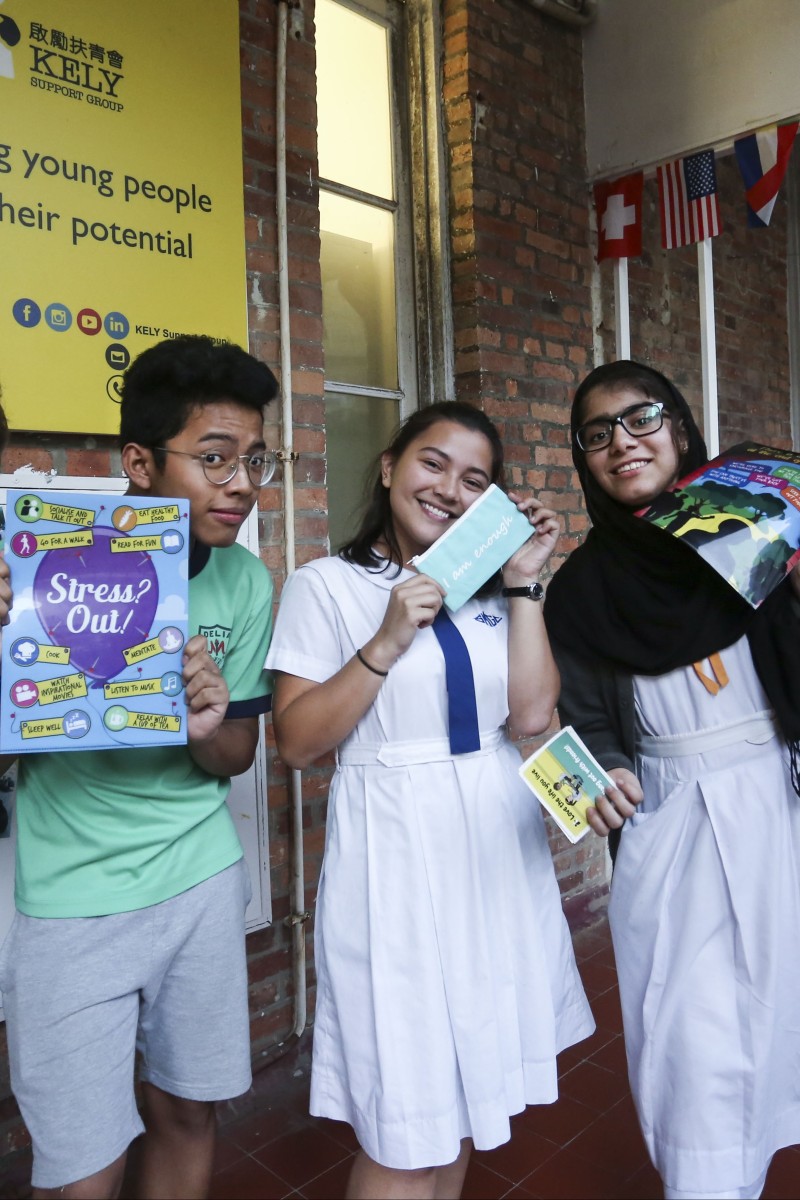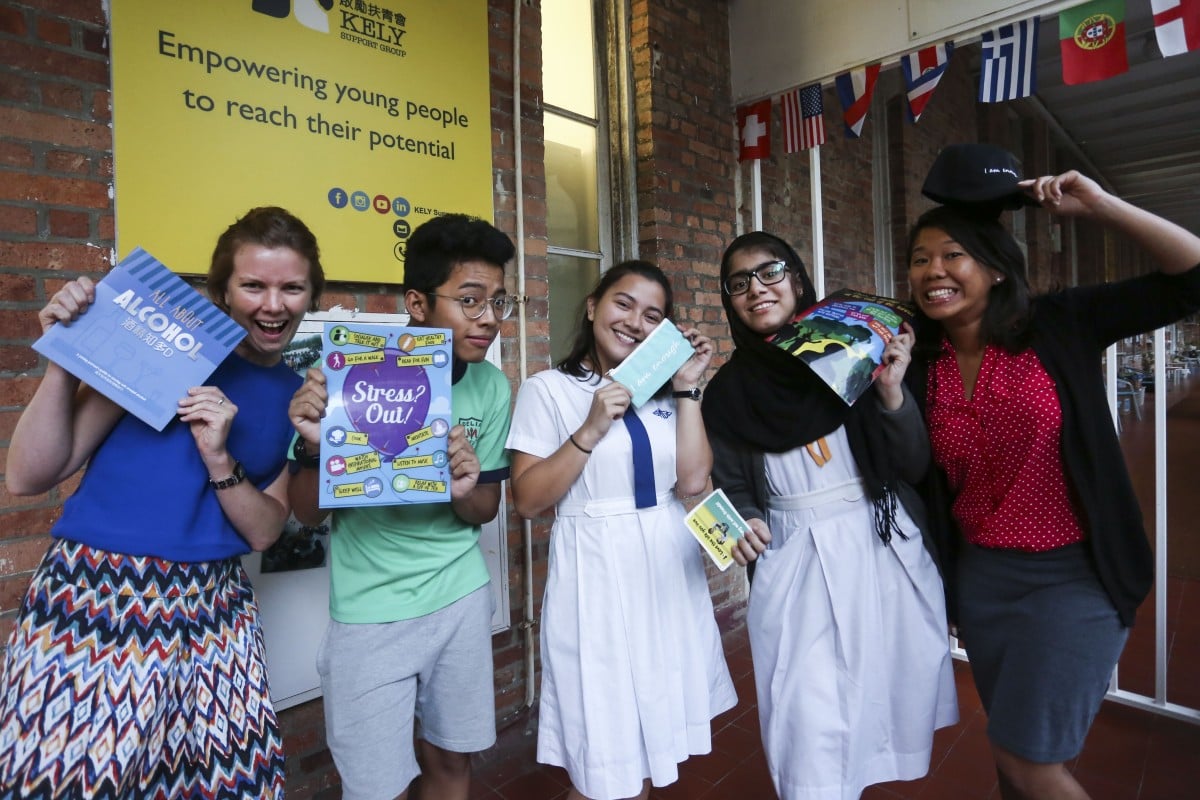
Instead of having a teacher tell you that drugs are bad, a new programme is letting young people take the lead
 Katherine Hampton (left) said students like Jud Domingo Flores, Ivanna Wolfinbarger, and Ahmedzai Areej can help with drug abuse awareness among their peers – and Sky Siu (right) agrees.
Katherine Hampton (left) said students like Jud Domingo Flores, Ivanna Wolfinbarger, and Ahmedzai Areej can help with drug abuse awareness among their peers – and Sky Siu (right) agrees. Teenagers may not always respond well to parents and teachers lecturing them about the dangers of drug abuse, but what if the advice came from videos made by their peers?
A drug awareness programme based on youth leadership believes it has found an effective way to prevent drug abuse among teenagers.
Katherine Hampton, a programme coordinator at the KELY Support Group, said secondary school students joining their “ExCEL” campaign would take the lead and raise awareness of drug and alcohol use.
ExCEL is short for express (Ex), connect (C), educate (E) and lead (L). It was launched in 2016 with support from Operation Santa Claus, an annual charity drive organised by the South China Morning Post and RTHK. It has received funding from Operation Santa Claus this year as well.
The project is for vulnerable young people from ethnic minority backgrounds and facing drug problems and issues of inequality.
Students taking part in the programme are asked to develop the skills and knowledge needed to decide how best to promote drug awareness information to their peers who are more at risk.
“It’s … a wonderful opportunity for the young people taking part in the programme to build leadership skills and to develop their own personal confidence,” Hampton said, adding that life skills such as peer support and resistance strategies were also covered.
Ahmedzai Areej, 17, one of the students who helped create promotional materials for prevention of drug abuse, said she had enjoyed taking part in the project.
From convict to ConBody: ex-drug dealer from New York turned fitness guru Coss Marte tells his story
“In the programme, people were kind of like your friends. They were really open-minded. They wouldn’t tell you what not to do. They would just listen to you and help you out,” the secondary school student said.
The project has also sought to encourage non-judgmental peer support and positive messaging for at-risk youths around Hong Kong.
Sky Siu, executive director of the KELY Support Group, said the funding has granted KELY the opportunity to build upon the success of the programme, equipping leaders from the initial pilot to become peer supporters for the next group of students.
“Building young people’s resilience and confidence in themselves, combined with a strong understanding of what substances could do, is important,” Sky said. “We believe that young people have the ability to positively influence their peers … and are able to provide support where the rest of the community may not always be available.”